Starbucks in New York is accused of using highly toxic dichlorvos pesticides in more than 100 stores
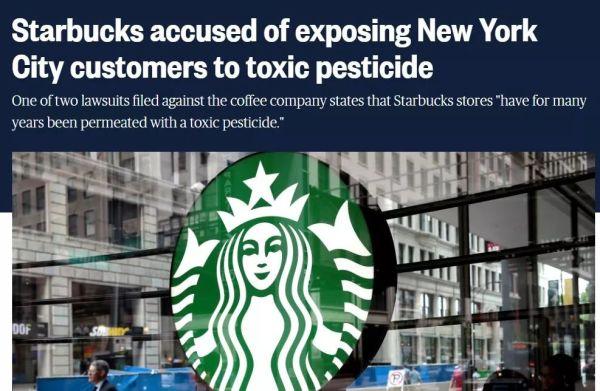
Professional coffee knowledge exchange more coffee bean information please follow the coffee workshop (Wechat official account cafe_style)
On May 21, local time, a law firm in New York City sued Starbucks in Manhattan for using a highly toxic pesticide called dichlorvos. Starbucks stores in Manhattan, New York, have been accused of using powerful pesticides that have exposed employees and customers to harmful chemicals that were not allowed to be used to kill insects, US media reported.

Screenshot of the New York Daily News
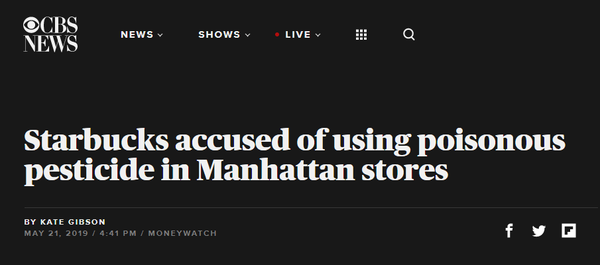
CBS headline screenshot
According to an article published by the local New York Daily News (New York Daily News) and CBS Radio 1010 Wins, two lawsuits filed in the Federal Court of the State of New York on the 21st pointed out that Starbucks perennially used pest control bars containing dimethyl dichlorodiphenyl phosphate (dichlorodiphenyl phosphate), which clearly marked on the warning labels that the product could not be used in food and feed processing and production places. Dichlorvos should not be used in kitchens or places where food is served, the Centers for Disease Control has warned. The substance can cause nausea, anxiety, diarrhea, dyspnea, muscle weakness and even death.
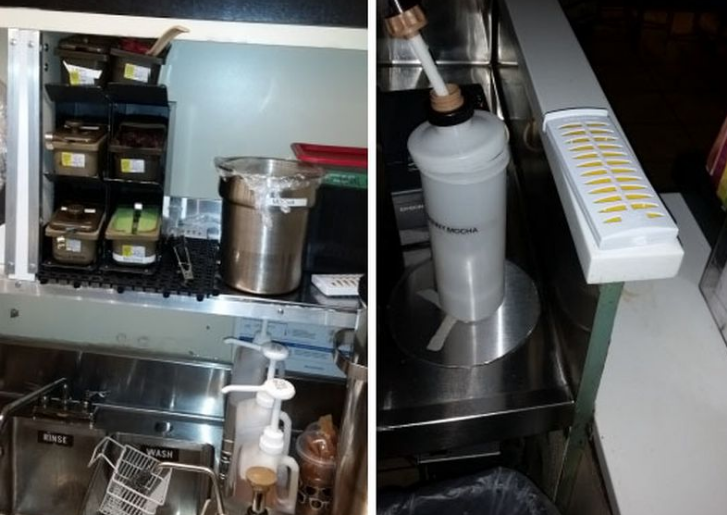
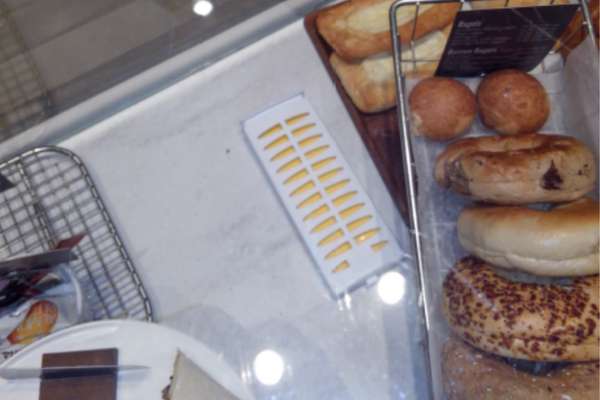
Photos from the lawsuit show strips of insecticide in Starbucks food storage areas, around food preparation machines and near vents.
1010 Wins reported that photos taken as evidence of the lawsuit showed the exterminator bars in the preparation areas, food storage areas and vents of Starbucks stores in Manhattan, and maggots and fruit fly eggs were found behind coffee bars and under sinks. Paul Oria, a professional pest control technician, served Starbucks from 2015 to 2018. He said that disinfestation bars containing dichlorvos had been found in more than 100 Starbucks stores, which were placed around vents, behind coffee bars, under worktables, next to pastry cabinets and in staff rest areas.
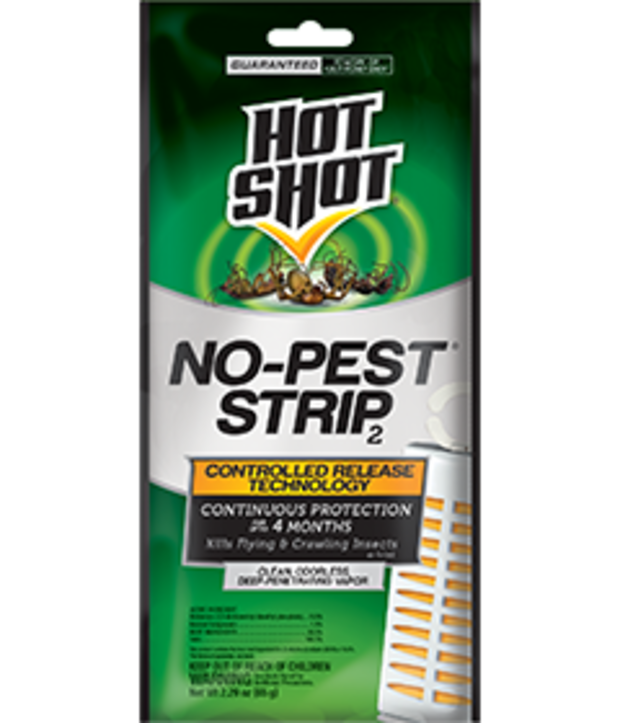
The insecticide, also known as DDVP, is one of the pest-free slivers produced by the Spectrum brand. Spectrum-branded tampons can be purchased from home improvement retailers and online, but according to their labels, they cannot be used near crowds or in food processing plants.
The lawsuit also alleges that Starbucks management turned a blind eye to harmful exterminators and did not take any corrective measures, the New York Daily News reported. Some former Starbucks employees say Starbucks has received at least 12 written warnings about the use of harmful pesticides in the past three years, but continues to use such anti-pest bars. Jill Shwiner, a pest control technician, said she hastily cancelled a long-term contract with Starbucks in February 2018 after repeatedly warning Starbucks managers in Manhattan, both verbally and in writing, to ban the use of the harmful bar, which poses a major threat to human health. Rafael Fox, a former Starbucks store manager who is one of the plaintiffs, said he was fired after issuing similar warnings several times.
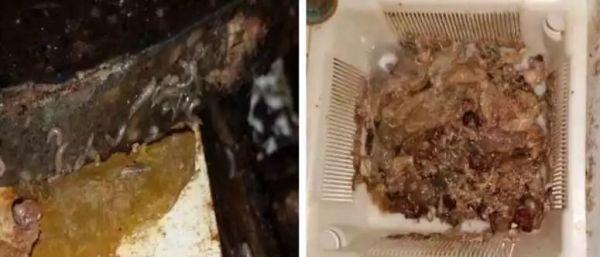
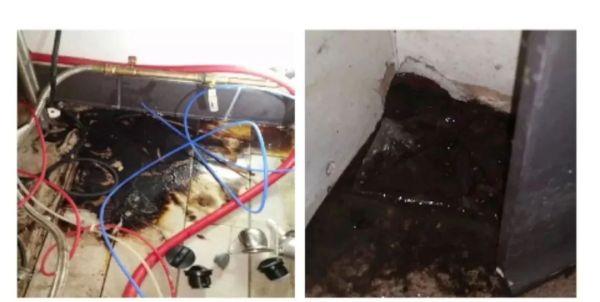
The lawsuit also exposed the dirty sanitation of Starbucks kitchen sinks.
Starbucks spokesman Reggie Borges responded on Tuesday that when it learned that some of its employees had used pest prevention products that violated the company's standards, the company immediately removed them from its stores. The spokesman could not immediately give details of the use or withdrawal of these products. But the spokesman pointed out that Starbucks will not provide customers with food in display cabinets. A spokesman for the coffee giant also said: "the lawsuit filed by the plaintiffs and their lawyers has no legal basis and is only to arouse public panic. The company believes that no employees or customers are in a dangerous environment." It also refutes the idea that some people have lost their jobs as a result of expressing concern.
It is not known which Starbucks is involved.
END
Important Notice :
前街咖啡 FrontStreet Coffee has moved to new addredd:
FrontStreet Coffee Address: 315,Donghua East Road,GuangZhou
Tel:020 38364473
- Prev
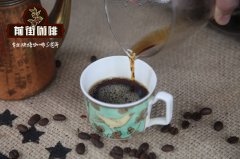
Ethiopia native seed washing Lim production area Chishi deed treatment plant in the southwest of Ethiopia
Professional coffee knowledge exchange more coffee bean information please follow coffee workshop (Wechat official account cafe_style) Guojia: Ethiopia (Ethiopia) production area: Limu (processing plant: Chishi deed processing plant Haiba: 1850 1900 m varieties: Ethiopian native species (Heirloom) producer: local smallholder treatment water washing treatment (
- Next
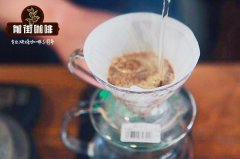
The characteristics of Yunnan Coffee Katim and Iron pickup
Professional coffee knowledge exchange more coffee bean information please follow the coffee workshop (Wechat official account cafe_style) most of Yunnan now grows Katim, this variety is a hybrid of Kaddura and Robusta, a Bourbon branch of Arabica species. The reason for planting this variety is that Katim has Robusta gene, so it is easier than single in disease resistance.
Related
- What documents do you need to go through to open a coffee shop? coffee shop coffee shop certificate processing process
- How to purchase Coffee beans in small Cafe how to choose a suitable supplier for domestic Coffee supply Company
- How to drink Starbucks Fragrance White Coffee? how to make Australian White Coffee? what Italian coffee beans are recommended?
- The Story of Flora Coffee: the name of Flora Coffee Bean and the implication of the Flowers on Florna Coffee
- How much does a cup of coffee cost? How much is the profit of a cup of coffee? What is the profit of the coffee shop in a year?
- Yunnan small Coffee, known as "fragrant Coffee", introduces the characteristics of Alpine Arabica Coffee producing areas in Yunnan, China
- 2023 latest Starbucks full menu price list how much is a cup of Starbucks coffee what is better to drink the most popular hot and cold drinks recommended
- Starbucks different kinds of Coffee Price list Starbucks menu 2023 Top Ten Best drinks in Starbucks
- Starbucks Spring praise Comprehensive matching Coffee Bean theme Story Packaging implication and taste description
- The cost of a cup of coffee latte American coffee cost price and selling price

